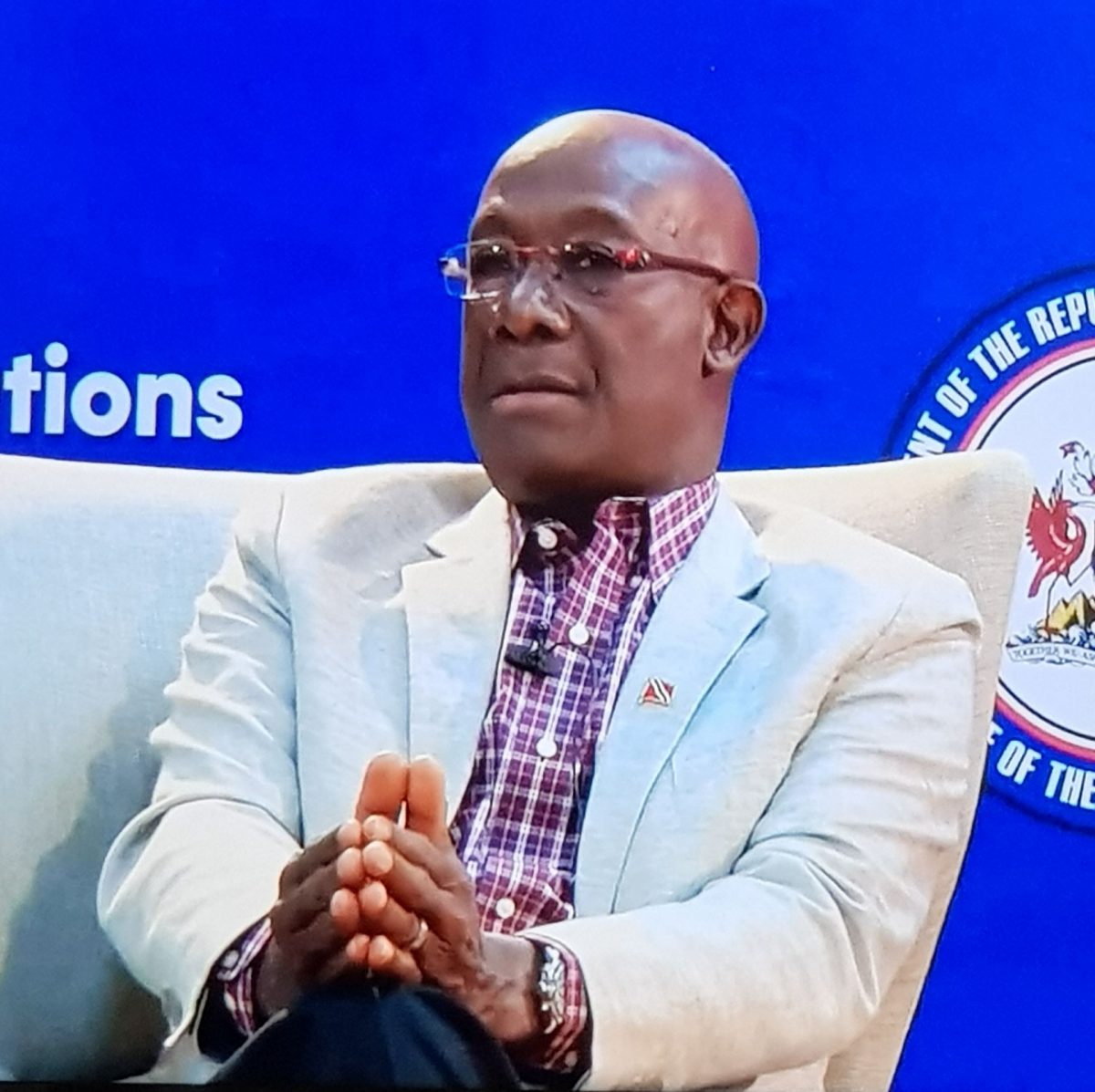(Trinidad Guardian) Indian High Commissioner Arun Kumar Sahu did not communicate the availability of India’s 500,000 vaccines to CARICOM and that is why Trinidad and Tobago did not know it was an option.
This was the word from Prime Minister Dr Keith Rowley, as he finally answered the month-long question of who dropped the ball over T&T’s failure to access India’s “Vaccine Maitri”, that country’s drive to donate vaccines all over the world.
Rowley revealed the information during his Conversations with the Prime Minister last night.
The Prime Minister, in his capacity as chairman of CARICOM, said he spoke with all the heads of governments about the genesis of the 500,000 vaccines from India and they all confirmed that there was no documentation, but that each country’s High Commissioner was supposed to confer the bilateral arrangements with respective governments.
“After all this beating up, I asked all my colleagues, heads of Governments to the entire CARICOM who was in the meeting, does anybody know or has anybody seen a document or has spoken to anyone in India about 500,000 vaccines. The answer is no,” Rowley said.
“Not one CARICOM head in that meeting could have said ‘I’ve seen an email, I’ve seen a letter. Not the Secretariat, not a Prime Minister.
“Where did that come from to become such a pillar of T&T conversation? It came from the CARICOM Secretariat.”
On February 13, the CARICOM Secretariat tweeted a thank you to India for the facility of 500,000 vaccines to CARICOM. Rowley said he still did not know the reason for that tweet but “the reason will come.”
“Yesterday, in response to questions to the CARICOM Secretariat, in response to the Trinidad story and elsewhere about 500,000 doses, this is the answer from the Secretariat,” he said.
Rowley then read out a response from the Secretariat.
“I had not received any written communication on India’s donation of vaccines to the region. The first I heard of it was media reports that Dominica and Barbados were about to receive a donation,” he read.
Rowley said that about two days later, the Indian High Commissioner in Guyana was reported in the Guyanese media saying that the vaccines would be made available to the region and that Guyana, Antigua, St Kitts and Nevis, the countries to which that commissioner was accredited, would receive donations
“This appears to be the source of that story,” Rowley said.
Rowley said that the Secretariat informed him that the arrangements were bilateral.
“And each High Commissioner would be responsible to the countries to which he or she is accredited,” he said.
“We have an ambassador here in Trinidad, if you are required, as happened in Guyana and the other small islands to know about this, then we should know about it here and there is a pathway.”
Rowley said the first time he heard about the vaccine was from local doctors whom Sahu had spoken to.
“Who did not speak to the Government about it,” he added.
Rowley said the second time he heard about it was from businessmen who were seeking to make arrangements to bring vaccines into the country.
The Prime Minister said Foreign Affairs Minister Dr Amery Browne approached Sahu about the vaccine and the subsequent reports of the availability and was told “I don’t know.”
“Well, we then communicated directly to India to find out if this was available and if it was we are willing to participate. I can tell you there has been no confirmation of any such thing from India,” he said.
Rowley said they also communicated with the suppliers and was told they could not take any more orders.
He said someone was also offering a US$1.8 million finder’s fee to procure the vaccines.
Rowley said it was also being said that T&T did not access those vaccines because of where it was being made.
“All of a sudden it’s not that small countries being left out of the market and availability but it became an issue of race,” he said.
Rowley said we are at the stage where we were told January, then told towards the end of February, then by March 22.
“As I speak to you now, we have no confirmation that on March 22 we would get vaccines,” he said.
Rowley said according to his communication with WHO, T&T might be getting 33,000 doses from the COVAX facility but is still on track to get the vaccines by the end of March.

